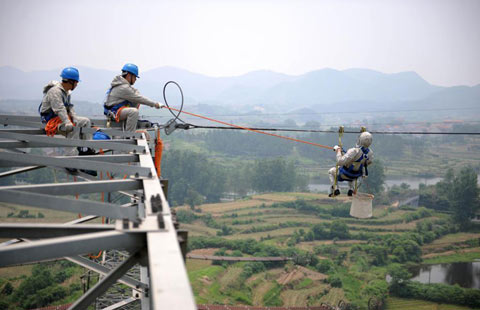Price strategies that will matter
By Zhongxiang Zhang (China Daily) Updated: 2014-05-26 07:12While splitting the grid is not a necessary option, separating electricity sales from the grid's transmission and distribution is a must to establish a competitive power market. It would also lead to the creation of an electricity market that is not reliant on the grid. These are the more realistic options for pushing forward power reforms.
 |
 |
In the case of coal, though the dual-pricing system has been abolished, it is still difficult to establish a nationwide market, as railway freight mechanisms have not been liberalized. Given the uneven geographical distribution of coal production and output, and the need for coal to be transported over long distances, it is imperative that the freight mechanisms are also liberalized quickly. Reforms need to be targeted in such a manner that they can lead to the formation of a complete coal value chain.
However, even if such reform is undertaken coal prices do not fully reflect the cost of production because of the government's controlled costs and distorted prices. They also do not include negative externalities.
The resource tax levied on crude oil and natural gas on a revenue basis, rather than by existing extracted volume, which has been applied nationwide since November 1, 2011, is a step in the right direction.
China should broaden that reform to coal, by overhauling the current practice and fix the levy on coal by revenues. This will also help to increase local governments' revenues and alleviate their financial burden and encourage them not to focus on economic growth alone.
The author is a distinguished professor and chairman at the School of Economics, Fudan University, Shanghai. He is a fellow of the Asia and the Pacific Policy Society. The views do not necessarily reflect those of China Daily.
- Huawei's Kirin 920 to shake global chip market?
- China to log food company conduct
- China's mixed ownership reform advances against headwinds
- Test drive on China's ancient trade routes with Rolls-Royce
- Bumpy start for plan to regulate taxi-calling apps
- CMB reveals credit to financial leasing companies
- Beijing car plate 'yin and yang'
- 19 cities to develop Silk Road tourism

















